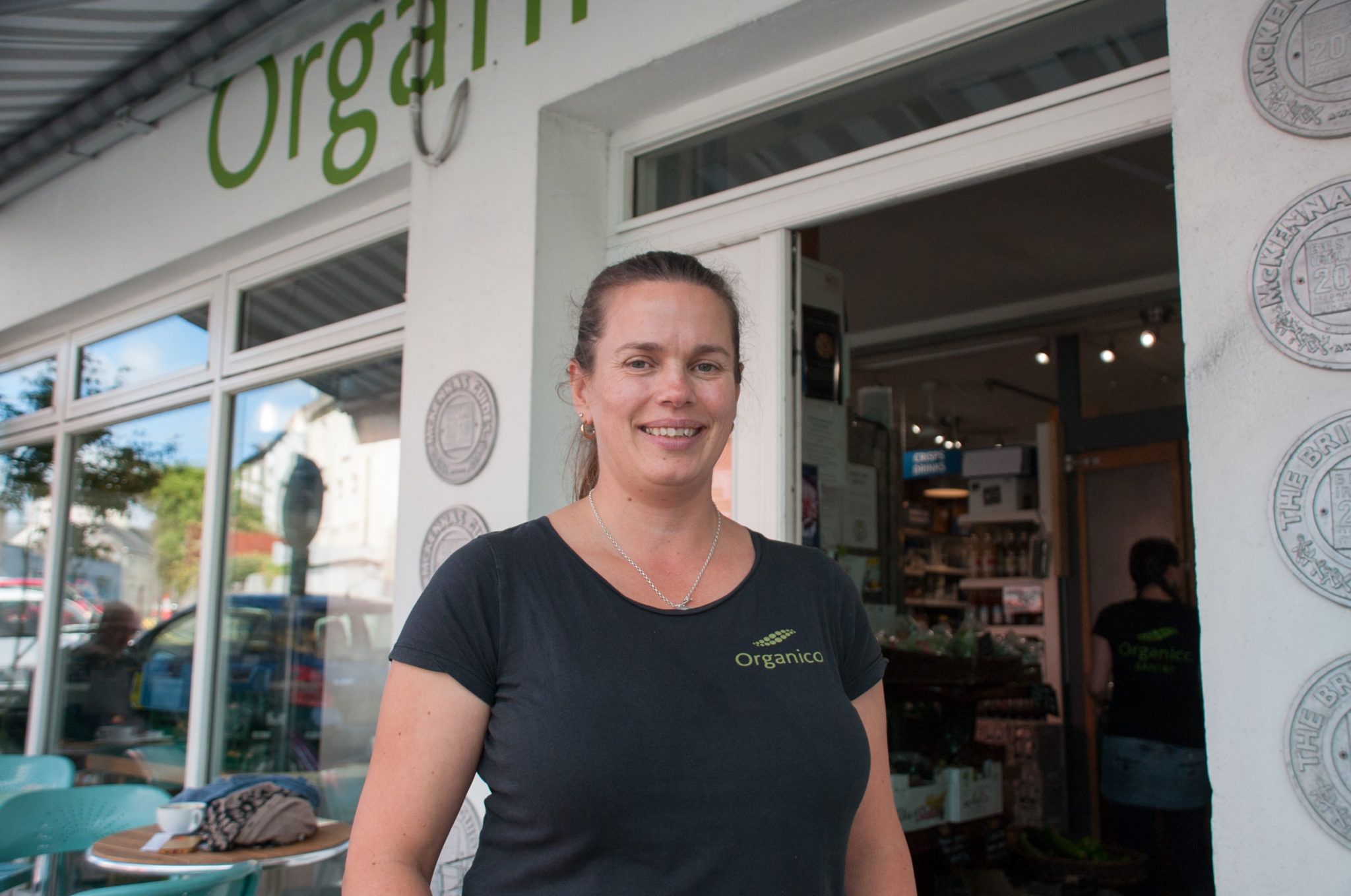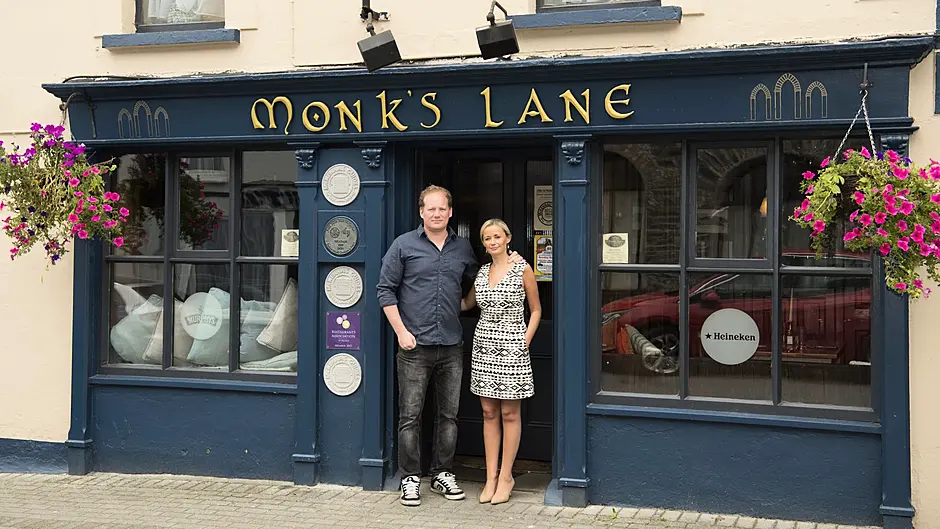‘Government must realise that we have nothing left to give’ – A perfect storm of costs and new regulation is putting restaurants and cafés in West Cork under severe pressure, leaving many worried about their viability.
'THERE’S nothing more I can do to cut costs – it’s up to the government now to help,’ said Faye Bolger who runs BallyBia in Ballydehob. Faye has recently reduced her opening hours from five days, to three days a week, as a cost-saving measure.
‘We’re open from Friday to Sunday, instead of Wednesday to Sunday to try to make savings,’ she said.
Energy costs, the vat rate and people’s reduced disposable income are her main challenges.
‘Energy costs are the big thing with bills typically gone from €1,200 every two months to €5,000, and that’s from shopping around,’ said Faye.
She pivoted the business last year to a more casual model which sees the customer order and collect their food from a hatch.
‘That was partly motivated by costs and it meant staff numbers reduced from 16 to five, which is helping now,’ she said.
However, it has crossed her mind to close the business, she admitted.
‘There’s not much more I can do to cut costs – it’s up to the government now. The way things are at the moment, it’s killing my passion. I’m working 80 hours a week and getting nothing for it.’
Gavin Moore from Monk’s Lane in Timoleague highlighted how most people don’t go into the hospitality industry for financial reasons.
‘They have a genuine passion for hospitality and they’re survivors and resilient, but at the same time, this year looks worrying. None of us knows what it will bring, it’s very daunting,’ he said.
‘I can see places closing. Already the landscape in West Cork is changing as people are having to work smarter, so on certain days it can be hard to find places open for lunch or dinner.’
Chris Heinhold of West Café Wine Bar in Bantry said the hospitality sector had been ‘weathering the storm for the last four years’ since the pandemic.
 Chris Heinhold of the West Café Wine Bar
Chris Heinhold of the West Café Wine Bar
‘Cash flow typically takes a hit in January, but we found it was more severe and more sudden this January,’ said Chris, who also opened a second restaurant before Christmas.
‘There’s very little left in reserve to keep afloat,’ said Chris who employs 19 staff full, and part time, and is also a Social Democrat councillor.
Energy bills are his main concern, paying approximately €3,000 every two months. He also called for better engagement from Revenue to manage outstanding payments, and pointed out that some businesses are still dealing with warehoused debts since the pandemic.
His partner previously worked full-time in the business, and while still very involved, opted to take up a full-time job elsewhere last year, Chris said.
‘We’re talking to our accountant constantly, and while the business is paying for itself week-to-week, there’s nothing left to put into it. The government needs to realise that businesses have nothing else left to give.’
Hannah Dare of Organico health food shop and café in Bantry highlighted the increase in minimum wage which has gone from €11.30 to €12.70 this month.
 Hannah Dare of Organico (Photo: Karlis Dzjamko)
Hannah Dare of Organico (Photo: Karlis Dzjamko)
Also, workers now have a right to five days’ sick pay a year, up from three last year. That figure will rise to 10 by 2026.
‘We want to pay our staff more and actually increased our wages in December, and we’re not against sick pay either.
‘That’s not the problem. It’s the lack of joined-up thinking by the government. No one seems to have analysed or stress-tested how all these increases will impact a business.
‘Between wages and sick pay this year it will cost us between €60-€70,000 which is basically our profit. In what is now our 32nd year in business, that’s quite depressing, to think we’ll looking at just breaking even.’
She also criticised the lack of guidance on the increased sick pay for part-time workers.
Organico employs around 25 staff on a full and part-time basis.
‘We really value work-life balance and encourage it. Our target is a four-day week and we have people job sharing and working part time. We’ve always been very flexible but we’re going to have to introduce a four-day rule from now on when hiring staff because we can’t afford not to.’
Hannah is also concerned for the tourism industry if prices do go up locally: ‘How will anyone be able to afford to stay and eat in West Cork? It’s going to be a complete catastrophe.’
She said they hadn’t, however, considered closing. ‘We had a good year last year so are coming from a strong position, but there’s only so many years you can hold it together like this.’
Cork South West TD Christopher O’Sullivan, from Fianna Fáil, agreed there is an urgent need for vat reduction to aid struggling businesses grappling with the escalating costs.
‘We’ve seen significant increases in energy costs, and additional pressures like pension auto-enrolment. Businesses are willing to adapt but they require support,’ Deputy O’Sullivan said.
‘The priority for me is to return to a 9% vat for food in the hospitality sector, including cafés and restaurants. This reduction is essential for giving these establishments the breathing room they need.
‘Many restaurants, especially in less urban areas, are under tremendous pressure. As a government, we need to act decisively. I will be prioritising this issue in my first few weeks as we return to the Dáil.’
Meanwhile, Cork South West Independent TD and leader of the Independent Ireland Party, Michael Collins, has called for the introduction of an emergency suite of financial supports aimed at addressing the escalating rate of closures being experienced by small businesses, particularly in the hospitality sector. Deputy Collins was speaking after the Restaurants Association of Ireland (RAI) confirmed that there were more than 280 such closures among its members in the six months prior to the end of 2023. The RAI also anticipate an increased rate of closures in 2024.
‘Even with the best will in the world, the current climate is just not sustainable for the owners of these businesses as their input costs continue to rise and their profit margins continue to shrink,’ said Deputy Collins. ‘What is absolutely galling about this is the fact that the concerns and fears around the rate of closures have been repeatedly flagged.’
Deputy Collins said that many of these small businesses are at the centre of local life.
‘When they are forced to close, the knock-on impact, not just in terms of employment, is immeasurable. Vital links are lost, and communities become less sociable because there is simply nowhere to meet for a coffee or lunch. The social fabric itself is being ripped apart because of the rate of closures,’ he said.
He said the introduction of a ‘mini-budget’ would be a signal from government that it is willing to ‘change course and to throw a lifeline to all those businesses who contribute so much to our economy and our society.’








